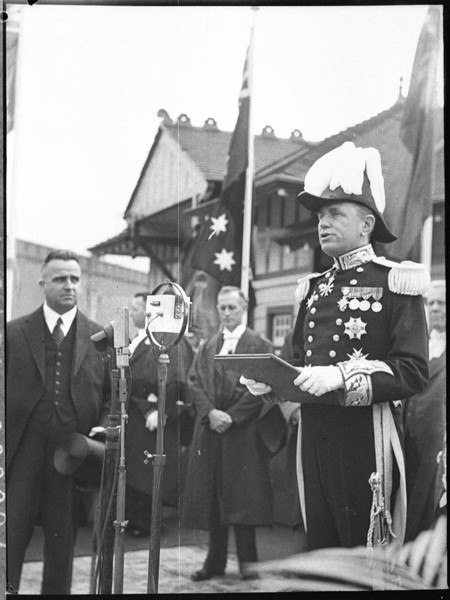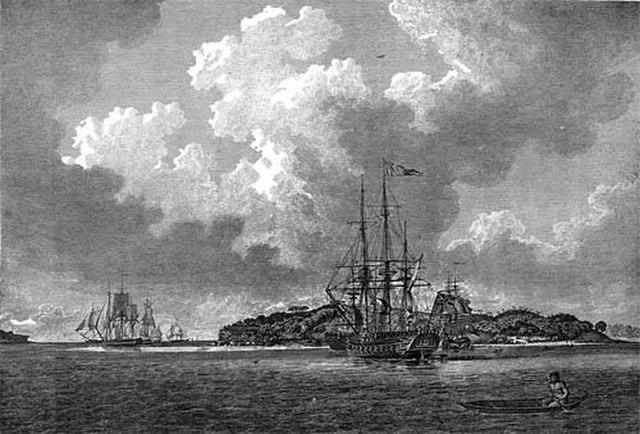General Sir Richard Bourke, KCB, was an Irish soldier, who served in the British Army and was Governor of New South Wales from 1831 to 1837. As a lifelong Whig (Liberal), he encouraged the emancipation of convicts and helped bring forward the ending of penal transportation to Australia. In this, he faced strong opposition from the landlord establishment and its press. He approved a new settlement on the Yarra River, and named it Melbourne, in honour of the incumbent British prime minister, Lord Melbourne.
Bourke by Martin Archer Shee (c. 1837–1850)
Burke c. 1835
A statue of General Sir Richard Bourke, the first public statue ever erected in Australia, stands outside the State Library of New South Wales in Sydney.
Governor of New South Wales
The governor of New South Wales is the representative of the monarch, King Charles III, in the state of New South Wales. In an analogous way to the governor-general of Australia at the national level, the governors of the Australian states perform constitutional and ceremonial functions at the state level. The governor is appointed by the monarch on the advice of the premier of New South Wales, and serves in office for an unfixed period of time—known as serving At His Majesty's pleasure—though five years is the general standard of office term. The current governor is retired judge Margaret Beazley, who succeeded David Hurley on 2 May 2019.
Governor of New South Wales
Sir John Northcott, the first Australian-born governor (1946–57).
Lord Wakehurst takes the oath of office upon his arrival in Sydney in 1937.
The First Fleet in Botany Bay at voyage's end in 1788. Its arrival marked the establishment of the colony of New South Wales and the office of the governor.







